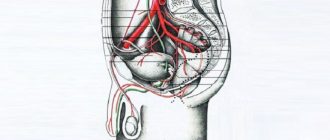Research into the relationship between alcohol and prostate cancer has been going on for a long time. Based on the cumulative results of various experiments, scientists came to the conclusion that in 5% of cases alcohol becomes the main cause of cancer. Its use during treatment complicates recovery by 15-20%.
Impact on appearance
Regardless of the type and strength, alcohol has the following effects on the body:
- As a result of metabolism, ethyl alcohol in the body turns into acetaldehyde, which is a powerful carcinogen. It provokes DNA changes and mutations at the cellular level.
- Reduces the metabolic process in tissues, which impairs the absorption of vitamins A, C, D, E and carotenoids. This negatively affects the body's ability to self-heal and worsens the general condition of tissues.
- Alcohol suppresses the immune system, which increases the likelihood of the formation of both a malignant tumor and other pathologies that can lead to cancer.
- Alcohol promotes the development of blood clots and increases blood viscosity, which slows down blood flow and contributes to the appearance of congestion in the pelvic organs.
- Beer and other hop-based alcoholic drinks increase the level of estrogen, a female hormone. This disrupts the general hormonal background and becomes one of the causes of pathology.
To prevent the development of cancer, it is recommended to completely abstain from alcoholic beverages or reduce their consumption to minimal doses. This dose is considered to be no more than 40 ml of pure ethyl alcohol per day (approximately equivalent to 100 ml of vodka, 3 glasses of wine or 2 bottles of beer), however, a person should completely stop drinking 2 days a week.
Proponents of alcoholic beverages can make the following arguments that it is possible to drink alcohol if you have prostate cancer:
- Strong alcohol can slow down the development of a malignant tumor. The argument is fundamentally incorrect, because alcoholic drinks enter the prostate gland only after they are processed by the liver. As a result of this process, acetaldehyde appears, which can provoke the appearance of a tumor and aggravate the course of an existing one.
- Alcohol has an analgesic effect. This argument is partially correct; alcoholic drinks distort perception and dull sensitivity and pain threshold. However, the harm caused by their use far exceeds the benefit from short-term dulling of pain. Over time, its use will only lead to their strengthening.
Effect on treatment
Taking minimal safe doses of alcohol is allowed at the early stage of adenoma, but with a malignant tumor, any amount is harmful. The following negative effects appear:
- Alcohol for prostate cancer reduces the effectiveness of drug treatment. The effect of the drugs is inhibited, in addition, the viscosity of the blood increases, so their transportation to the affected tissues also worsens.
- Drinking alcohol increases the likelihood of bleeding and complications if surgery is necessary. There is also a significant increase in the likelihood of negative manifestations during the rehabilitation period.
- Immune function is impaired, which reduces the likelihood of positive therapy. The chances of recovery in patients who completely abstain from alcohol are 20% higher.
How does wine work?
There is a debate about red wine and prostate cancer, according to which Mediterranean residents have almost no complaints about prostate cancer, drinking this drink almost every day.
There is some truth in this, however, it does not mean that the same result is guaranteed in other cases. Residents of this region have been drinking wine for thousands of years, as a result of which their bodies are almost genetically adapted for this. In addition, daily doses are not so large - it is about 50-60 ml, often in diluted form (especially in the hot season). Such amounts help improve blood flow, which eliminates congestion in the prostate, but do not produce a large amount of pathogenic products from its use. It should be taken into account that winemaking in the Mediterranean is very developed, so low-quality products, especially with various chemical additives, are not in use there, unlike our market.
In addition, this result appears only when drinking red wine, due to its composition, because white does not have the same effect.
How do spirits and beer work?
Drinking strong drinks if you have prostate cancer is strictly prohibited. If moderate consumption of red wine, at most, may not have a negative result, then strong drinks do not have this property.
Drinking beer, even in moderation, is also prohibited. This does not happen because it contains a lot of ethanol and the body does not have time to process it. The fact is that they contain hops, which contain estrogen, i.e. the female hormone. It is harmful to the male body because it worsens hormonal levels, which affects almost all processes. That is why it is forbidden to drink even non-alcoholic beer (although even it contains 0.5% ethyl alcohol).



